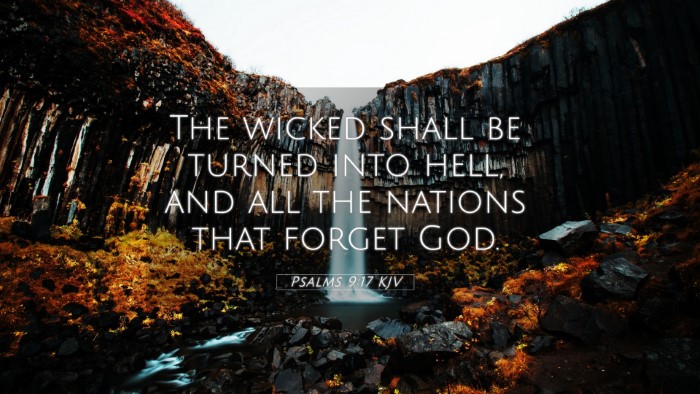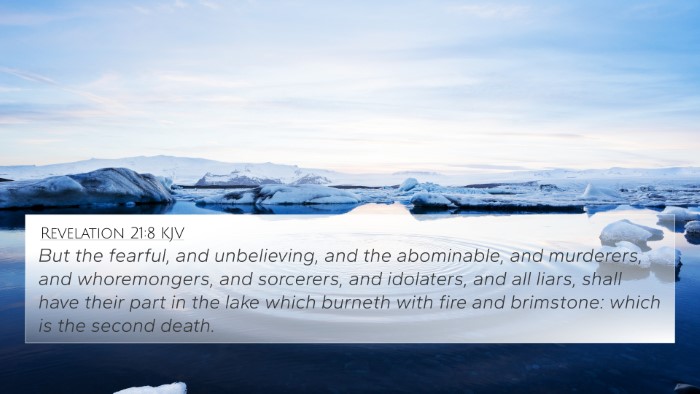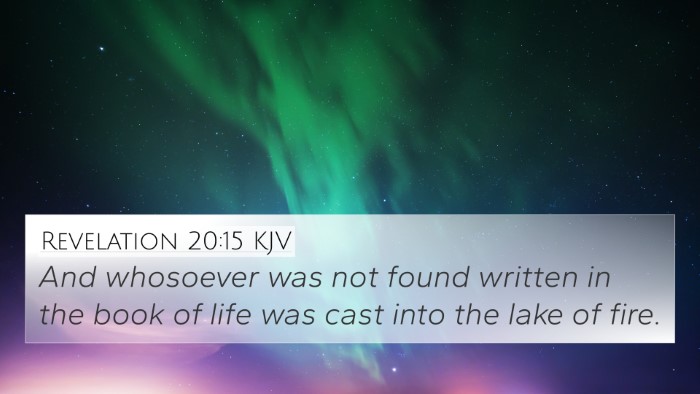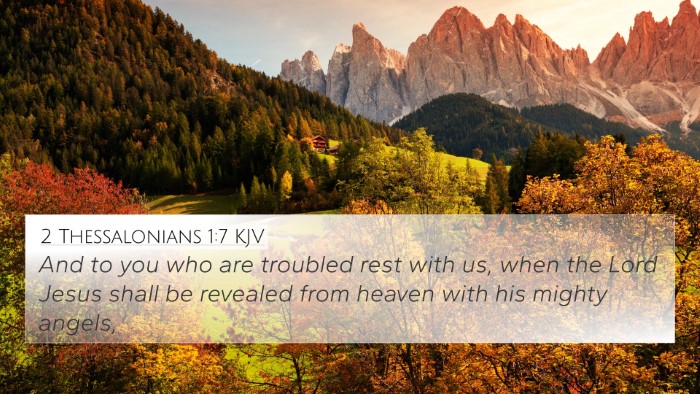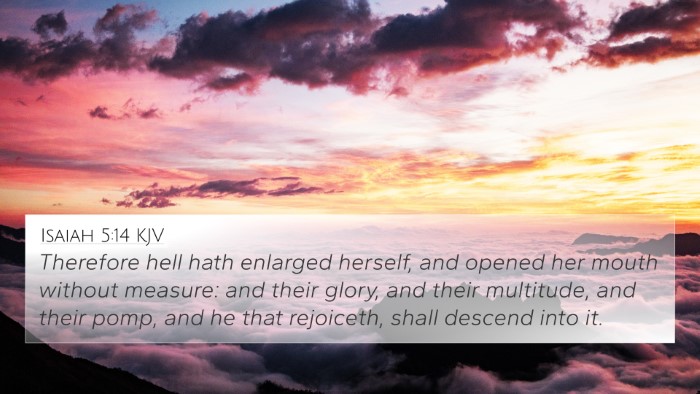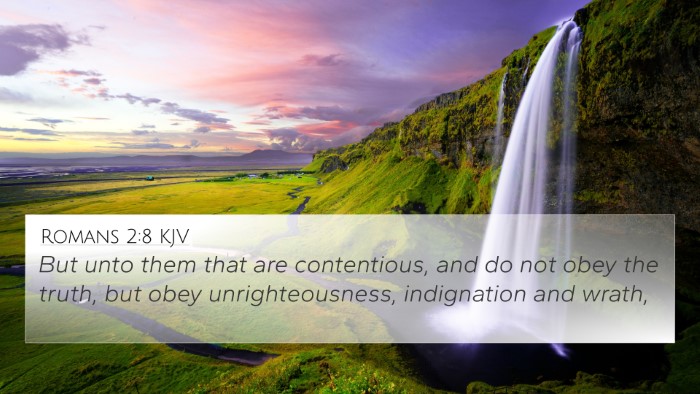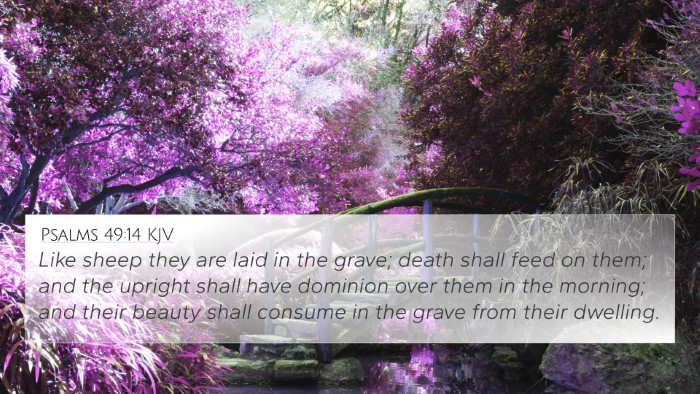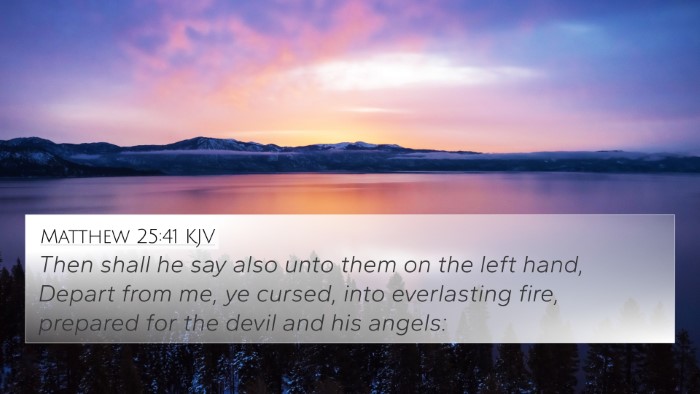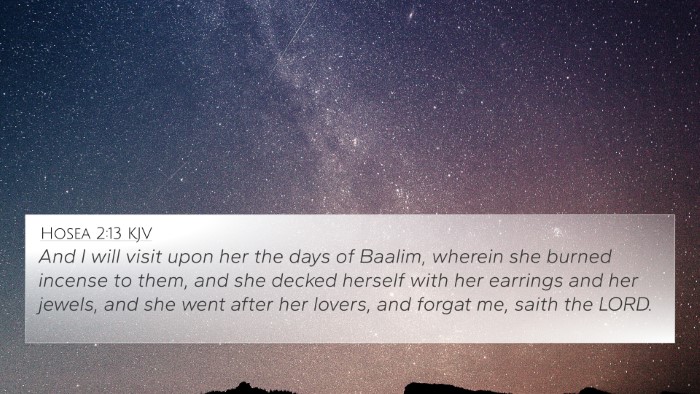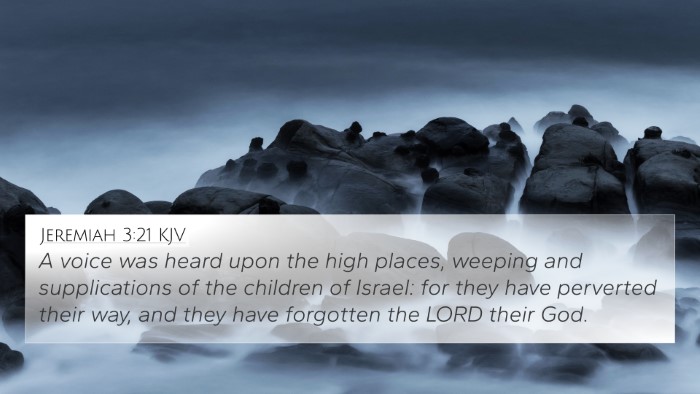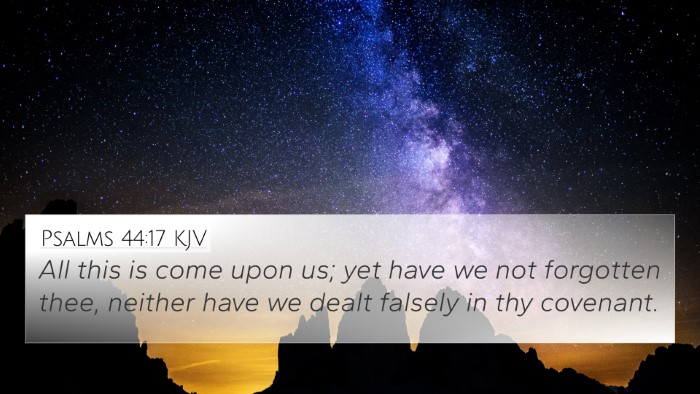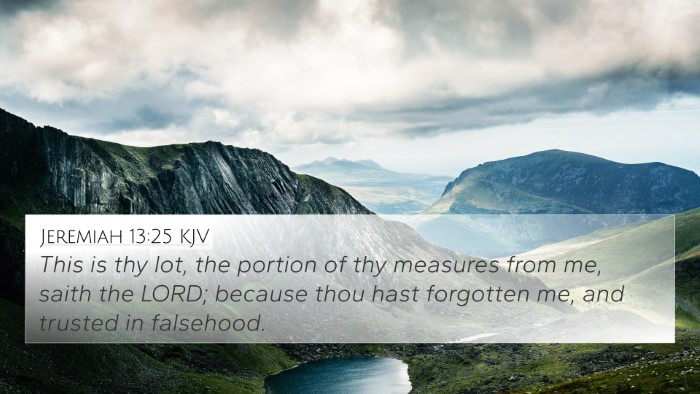Psalms 9:17 - Meaning and Explanation
The verse Psalms 9:17 states: "The wicked shall be turned into hell, and all the nations that forget God." This verse carries profound theological significance and serves as a sobering reminder of the consequences of wickedness and the importance of remembrance of God in our lives.
Interpretation and Insights
Understanding this verse requires a careful examination of its elements, drawing from various public domain commentaries. Below is a consolidated interpretation based on the insights of Matthew Henry, Albert Barnes, and Adam Clarke.
The Fate of the Wicked
The phrase "the wicked shall be turned into hell" indicates the destiny awaiting those who live in sin and rebellion against God. Matthew Henry explains that the term "hell" here signifies a state of punishment, illustrating divine justice where the wicked reap the consequences of their actions. Albert Barnes adds that this is indicative of God's righteous judgment, highlighting that there is a separation between the righteous and the wicked at the divine judgment.
National Accountability
Additionally, the verse states, "and all the nations that forget God." This broadens the scope from individual wickedness to national responsibility. Adam Clarke emphasizes that nations, like individuals, are accountable to God. When a nation becomes forgetful of its Creator and fails to uphold His laws, the same fate of condemnation applies.
The Importance of Remembrance
“Forgetting God” suggests a deliberate neglect of His statutes and commandments. Matthew Henry notes that such forgetting is not incidental but arises from a conscious choice to turn away from God. This brings about moral and spiritual decay not just for individuals but for entire nations. Albert Barnes emphasizes the idea that true remembrance of God leads to righteousness, while forgetting leads to destruction.
Bible Cross-References
In exploring the connections between Bible verses, we can draw several relevant references that illuminate and reinforce the meaning of Psalms 9:17:
- Psalm 1:6: "For the Lord knows the way of the righteous, but the way of the wicked will perish." This links the righteous with divine favor and the wicked with destruction.
- Proverbs 14:34: "Righteousness exalts a nation, but sin is a reproach to any people." This verse stresses the importance of righteousness for national wellbeing.
- Romans 1:18: "For the wrath of God is revealed from heaven against all ungodliness and unrighteousness of men." This aligns with the theme of divine judgment on wickedness.
- Matthew 25:46: "And these will go away into eternal punishment, but the righteous into eternal life." This reinforces the finality of the judgment discussed in Psalms 9:17.
- 2 Thessalonians 1:9: "They will suffer the punishment of eternal destruction, away from the presence of the Lord." This reflects the eternal consequence of forgetting God.
- Jeremiah 18:7-10: Talks about how nations can be uprooted or planted based on their moral choices, similar to the warning in Psalms 9:17.
- Revelation 20:15: "And if anyone's name was not found written in the book of life, he was thrown into the lake of fire." This warns of the ultimate consequence for abandonment of God.
Thematic Connections
This verse can also be analyzed through various themes such as divine justice, national responsibility, and spiritual remembrance. The interplay of these themes illustrates the broader theological narrative within the Bible, weaving connections that speak to both individual believers and communities alike.
Cross-Referencing Biblical Texts
Using tools for Bible cross-referencing helps in drawing parallels and understanding the integrated message of the Scriptures. A Bible concordance can be particularly handy in discovering these interconnections, allowing believers to engage further with biblical themes. Furthermore, effective Bible cross-reference guides facilitate comprehensive studies that uncover these relationships.
Conclusion
In summary, Psalms 9:17 serves as a poignant reminder of the wicked's fate and the collective obligation of nations to remember God. By exploring related scriptures, believers can deepen their understanding of divine justice, the consequences of forsaking God, and the essential role of righteousness in both personal and communal life.
Through careful comparative Bible verse analysis and the use of Bible cross-reference systems, individuals can engage in a more profound spiritual journey, understanding not only what is stated in Psalms 9:17 but how it resonates throughout the entirety of Scripture.

